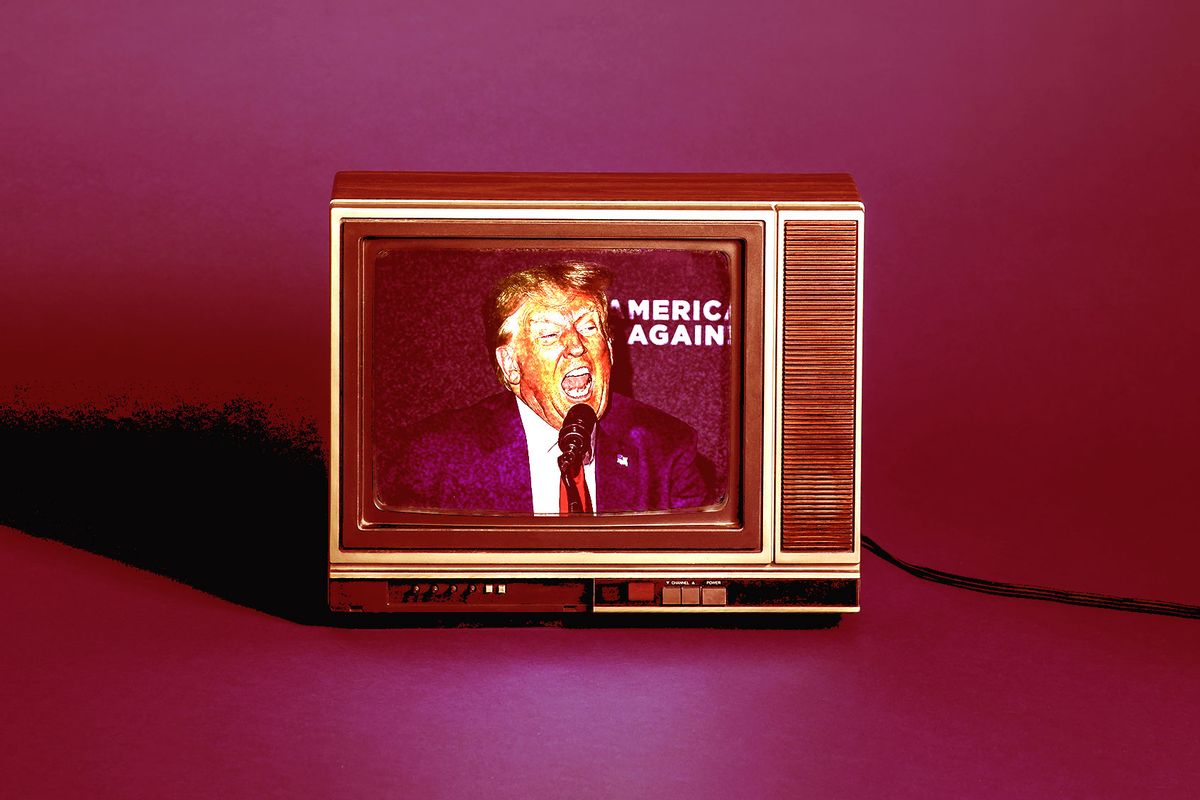Within Project 2025, a document laden with calls to slash government agencies and programs dedicated to American state media abroad stands out, with the authors of the document deeming their mission “noble” and calling on new political control over Cold War-era initiatives.
The Project 2025 section on media agencies is split into two parts. The shorter part focuses on the Corporation for Public Broadcasting and accuses the Public Broadcasting Service (PBS) and National Public Radio (NPR) of being “leftist broadcasters” and contributing to a “tyrannical” situation while calling for their defunding.
The more substantial section, however, focuses on the United States Agency for Global Media, an agency founded in 1999 to serve as a supervisory body for America’s more famous state media enterprises, like Voice of America and Radio Free Europe.
All told the Agency for Global Media is a nearly billion-dollar media project supervising six networks, including the previously mentioned networks as well as the Office of Cuba Broadcasting, Radio Free Asia, the Middle East Broadcasting Networks and the Open Technology Fund.
The Heritage Foundation’s Mora Namdar, who authored the section on the Agency for Global Media, takes an interest in infrastructure investments for radio stations and reducing redundant agencies but she spends the bulk of the document accusing the agencies of “joining the mainstream media’s anti-U.S. chorus and denigrating the American story—all in the name of so-called journalistic independence” and prescribing solutions.
Namdar specifically attacks the agencies for publishing stories that included criticism of President-elect Donald Trump during the first administration, which she calls “typical mainstream media talking points assailing the President and his staff.” She goes on to attack a Voice of America White House correspondent, likely Steve Herman, for posting content she considers “personally insulting” to Trump during his first administration.
The 2020 investigation into Herman erupted into a debacle of its own when political appointees were accused of violating the agency’s “Firewall,” which is supposed to prevent political appointees from tampering with the agency's journalistic standards.
Trump’s appointee to lead the Agency for Global Media, Micahel Pack, a one-time associate of Steve Bannon, had repeated issues with violations of the Firewall throughout his short tenure at the top of his agency, targeting employees for removal based on their political beliefs, later claiming to The Federalist that he was there to “drain the swamp.” He was also found to have spent $1.6 million in a no-bid confidential contract with a Virginia law firm to investigate executives. John Adams, a senior partner at the law firm, clerked for Justice Clarence Thomas and had overseen the McGuireWoods contract with the agency.
We need your help to stay independent
Namdar goes on to complain about media outlets publishing “near-daily criticisms of Trump Administration appointees” at the agency and elsewhere attacking the Firewall for, at least ostensibly, forbidding political appointees from controlling the “direction of content in any way.”
The cure to what Namdar sees as problems is to eliminate the agency’s Firewall, giving political appointees more “oversight” over who gets to work at the United States' state-funded media apparatus both domestically and abroad. The Trump administration dismantled the Firewall in October of 2020, though President Joe Biden’s administration saw it restored.
Namdar also draws out a plan to give the White House’s National Security Council and State Department more direct control over the Agency for Global Media, noting that Voice of America “was most effective before and during the Cold War when it was under the direct supervision and control of the War and State Departments.”
This would not represent the first time an administration has attempted to exert increased influence over America’s state media apparatus. Early in the Reagan administration, Charles Wick, an associate of former President Ronald Reagan, had pushed to imbue Voice of America with an even tougher anti-Soviet slant.
As with the American Intelligence Community and other federal agencies, however, there is an open question as to whether increased top-down control over staffing could be used to install Trump loyalists and whether these institutions will be used in the interests of the United States or the interests of those in power.
Want a daily wrap-up of all the news and commentary Salon has to offer? Subscribe to our morning newsletter, Crash Course.
Nick Cull, a propaganda expert and a professor at the University of Southern California Annenberg, told Salon that potential attempts to instill an overt political agenda at the Agency for Global Media would be a mistake.
“We don’t know what’s going to happen but I would certainly say that the stage is being set for a fight and the journalists will be very aware of the stakes,” Cull said. “If we’re returning to the Cold War, the great insight was that you don’t politicize your broadcasting. Audiences have great spin detectors.”
While Cull noted problems and inefficiencies at the agency, like the overlap of certain programs or past personnel scandals, he cautioned that attempts to turn American state media into something like RT, formerly Russia Today, would likely backfire. Instead, he advocated for these agencies to be a vehicle for journalism that advocates for democracy.
“When they argue equivalence, to the extent they argue equivalence, we are put on the back foot,” Cull said. “It should be that our media is substantially different.



Shares